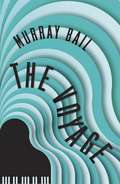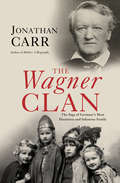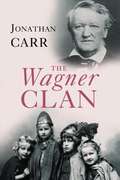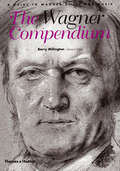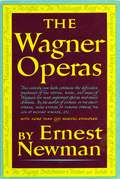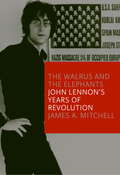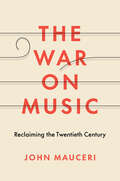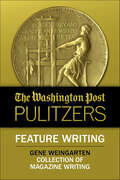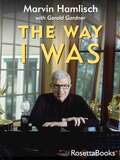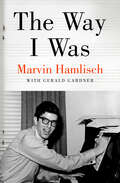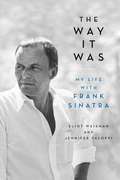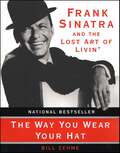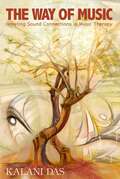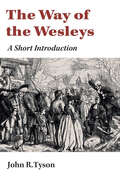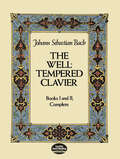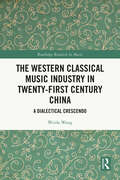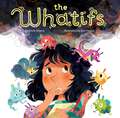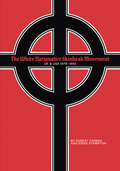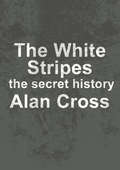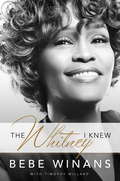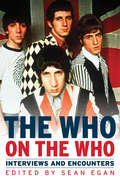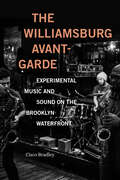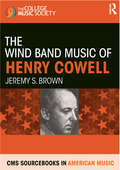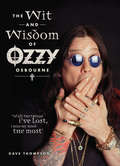- Table View
- List View
The Voyage
by Murray BailFrank Delage, a middle-aged Australian, arrives in Vienna with the most daring of propositions. He has invented a revolutionary piano and means to market it to the grand old world of classical music. A chance meeting with one Amalia von Schalla brings new possibilities - a soirée, an introduction to her daughter Elisabeth, dinner with an avant-garde composer. But when the sheer audacity of his campaign dawns on him, he takes a slow boat home to the southern hemisphere. As it meanders through the Mediterranean and the Suez Canal, he is afforded ample time to reflect on tensions between the old world and the new. And, for all his travails, he is not going home empty-handed...
The Voyage
by Murray BailFrank Delage, a middle-aged Australian, arrives in Vienna with the most daring of propositions. He has invented a revolutionary piano and means to market it to the grand old world of classical music. A chance meeting with one Amalia von Schalla brings new possibilities - a soirée, an introduction to her daughter Elisabeth, dinner with an avant-garde composer. But when the sheer audacity of his campaign dawns on him, he takes a slow boat home to the southern hemisphere. As it meanders through the Mediterranean and the Suez Canal, he is afforded ample time to reflect on tensions between the old world and the new. And, for all his travails, he is not going home empty-handed...
The Wagner Clan: The Saga of Germany's Most Illustrious and Infamous Family
by Jonathan CarrAn Economist Best Book of 2007, Jonathan Carr’s The Wagner Clan proves, with the sweeping scope of a Wagnerian opera, that the history of Europe and that of the infamous composer’s family are inextricably intertwined. Carr presents not only Richard Wagner himself- musician, philosopher, philanderer, failed revolutionary, and virulent anti-Semite-but also a colorful cast of historical figures who feature in Wagner’s story: Franz Liszt (whose illegitimate daughter Cosima married Wagner); Friedrich Nietzsche; Arthur Schopenhauer; Richard Strauss; Gustav Mahler; Arturo Toscanini; Joseph Goebbels; Hermann Göring; and the "Wolf ” himself, Adolf Hitler, a passionate fan of the Master’s music and an adopted uncle to Wagner’s grandchildren. Wagner’s British-born daughter-in-law, Winifred, was a close friend of Hitler’s and seemed momentarily positioned to marry him after the death of her husband. All through the war the Bayreuth Festival, begun by the Master himself, was supported by Hitler, who had to fill the audience with fighting men and SS officers. After the war’s devastation, the festival was dark for a decade until Wagner’s offspring-with characteristic ambition and cunning- revived it. The Wagner Clan is a riveting chronicle of the ascent, decline, and rehabilitation of the German nation and its most infamous family.
The Wagner Clan: The Saga of Germany's Most Illustrious and Infamous Family
by Jonathan CarrollA well-researched account of the composer Richard Wagner's later life and the lives of his contentious descendants down to the present.
The Wagner Compendium: A Guide To Wagner's Life and Music
by Barry MillingtonThe unrivaled single-volume survey of Wagner's life and work Edited by one of the leading Wagner scholars of modern times, and with contributions from seventeen experts from around the world, The Wagner Compendium is the key to a complete understanding of the composer-- the most comprehensive, informative and well-organized guide to his life and times. Features include: calendar of Wagner's life, works and related events who's who of Wagner's contemporaries details of historical, intellectual and musical background exploration of Wagner's character and opinions full list of Wagner's prose writings comprehensive listing and discussion of the works
The Wagner Operas
by Ernest NewmanIn this classic guide, the foremost Wagner expert of our century discusses ten of Wagner's most beloved operas, illuminates their key themes and the myths and literary sources behind the librettos, and demonstrates how the composer's style changed from work to work. Acclaimed as the most complete and intellectually satisfying analysis of the Wagner operas, the book has met with unreserved enthusiasm from specialist and casual music lover alike. Here, available for the first time in a single paperback volume, is the perfect companion for listening to, or attending, The Flying Dutchman, Tannhäuser, Lohengrin, Tristan and Isolde, Die Meistersinger, the four operas of the Ring Cycle, and Parsifal. Newman enriches his treatment of the stories, texts, and music of the operas with biographical and historical materials from the store of knowledge that he acquired while completing his numerous books on Wagner, including the magisterial Life of Richard Wagner. The text of The Wagner Operas is filled with hundreds of musical examples from the scores, and all the important leitmotifs and their interrelationships are made clear in Newman's lucid prose. "This is as fine an introduction as any ever written about a major composer's masterpieces. Newman outlines with unfailing clarity and astuteness each opera's dramatic sources, and he takes the student through the completed opera, step by step, with all manner of incidental insight along the way. "--Robert Bailey, New York University
The Walrus and the Elephants
by James A. MitchellNineteen-seventy-one was the year John Lennon left London and pop stardom for a life in New York City as a solo artist, record producer and activist looking to help end the war in Vietnam. He settled in Greenwich Village and quickly came to be seen by the leaders of the faltering anti-war movement as someone who was capable of reinvigorating it. The government was acutely aware of Lennon's power as well, seeing him as a viable threat to Nixon's reelection hopes, initiating extradition proceedings against him. Lennon's second solo album, Imagine, appeared in 1971, followed the following year by Sometime in New York City. Meanwhile, John and Yoko are searching for her daughter, a primary reason they came to America in the first place. And John is struggling to embrace feminism. The Walrus and the Elephants tells a double-barreled story of music and politics, how the personal is political and the political is personal, of upheavals in one life amid the larger cultural upheavals of an era. From the Hardcover edition.
The War on Music: Reclaiming the Twentieth Century
by John MauceriA prominent conductor explores how aesthetic criteria masked the political goals of countries during the three great wars of the past century This book offers a major reassessment of classical music in the twentieth century. John Mauceri argues that the history of music during this span was shaped by three major wars of that century: World War I, World War II, and the Cold War. Probing why so few works have been added to the canon since 1930, Mauceri examines the trajectories of great composers who, following World War I, created voices that were unique and versatile, but superficially simpler. He contends that the fate of composers during World War II is inextricably linked to the political goals of their respective governments, resulting in the silencing of experimental music in Germany, Italy, and Russia; the exodus of composers to America; and the sudden return of experimental music—what he calls “the institutional avant-garde”—as the lingua franca of classical music in the West during the Cold War.
The Washington Post Pulitzers: Feature Writing, Gene Weingarten
by Gene WeingartenRecipient of the Pulitzer Prize for Feature Writing. What happens when one of the world&’s most renowned musicians appears incognito outside of a Washington, D.C. metro station to play some of the most beautiful music ever composed? In the audacious social experiment, &“Pearls Before Breakfast&”, Gene Weingarten seeks out the answer to this question as he chronicles how an audience of rush hour pedestrians pass indifferently by as international wunderkind Joshua Bell plays his Stradivarius. He also examines a horrifying phenomenon in the remarkable story "Fatal Distraction", in which he speaks to thirteen mothers and fathers whose children died as the result of being left in a sweltering car during the hot summer months. The result is an emotional revelation that inspires readers to take a closer look at the world around them.
The Way I Was
by Marvin Hamlisch Gerald GardnerMarvin Hamlisch got his start as a rehearsal pianist for Funny Girl with Barbra Streisand, and went on to co-create A Chorus Line, write the Oscar-winning musical score for The Way We Were, and win many other awards for the music he wrote for the stage and screen. Hamlisch is one of only a handful of people to win a Grammy, a Tony, an Oscar, and an Emmy. In this revealing autobiography, written in partnership with noted freelance writer Gerald C. Gardner, Hamlisch tells the story of his childhood, his marriage, and his friendships with stars including Liza Minnelli, Barbra Streisand, and Groucho Marx. The autobiography paints a nostalgic and intimate picture of Broadway and Hollywood. After his death in 2012, Barbra Streisand made a tribute to him in her appearance on the 2013 Oscar broadcast. This book includes moving words from Hamlisch's many celebrity friends during the memorial service held shortly after his death. ABOUT THE AUTHOR Marvin Hamlisch (1944-2012) was an award-winning American composer and conductor. Born in Manhattan to Viennese Jewish parents, Hamlisch was a child prodigy, and was admitted into the Juilliard School at the age of seven. He wrote his first Billboard Hot 100 song at the age of 21. Hamlisch wrote music for several early Woody Allen films, The Spy Who Loved Me, The Way We Were, and the original theme music for Good Morning America--among many other compositions. He also served as Principal Pops Conductor for the Pittsburgh Symphony Orchestra, the Milwaukee Symphony Orchestra, the San Diego Symphony, the Seattle Symphony, and several others. He is one of only a handful of people in the world to win an Emmy, Grammy, Oscar, and Tony. He also won two Golden Globes and a Pulitzer Prize. Hamlisch was awarded the Lifetime Achievement Award at the World Soundtrack Awards in 2009. Gerald C. Gardner is an author, scriptwriter, producer, and screenwriter. He is the author of 22 episodes of The Monkees and 11 episodes of Get Smart, several of which were nominated for Primetime Emmy Awards. He was also a senior writer for the series of live news satire broadcasts That Was the Week That Was. He is also the author of over 30 books.
The Way I Was
by Marvin Hamlisch Gerald GardnerThe EGOT-winning composer of The Way We Were and A Chorus Line recounts his remarkable life from childhood to Broadway and Hollywood. The son of Jewish Viennese immigrants, six-year-old Marvin Hamlisch&’s early musical talent and discipline led him to Julliard, where he studied for more than a decade. From there, Hamlisch got his start as a rehearsal pianist for Funny Girl starring Barbra Streisand. He went on to co-create the classic American musical A Chorus Line and wrote the Oscar Award–winning musical score for The Way We Were. Hamlisch is one of only a handful of people to achieve EGOT status—winning an Emmy, a Grammy, an Oscar, and a Tony. In this autobiography, Hamlisch tells the tale of his life and career, revealing personal stories of his childhood, his marriage, and his friendships with stars including Liza Minnelli, Groucho Marx, and others. It offers an intimate view of his life and a compelling portrait of Broadway and Hollywood through the second half of the twentieth century.
The Way It Was: My Life with Frank Sinatra
by Eliot Weisman Jennifer ValoppiA candid and eye-opening inside look at the final decades of Sinatra's life told by his longtime manager and friend, Eliot Weisman.By the time Weisman met Sinatra in 1976, he was already the Voice, a man who held sway over popular music and pop culture for forty years, who had risen to the greatest heights of fame and plumbed the depths of failure, all the while surviving with the trademark swagger that women pined for and men wanted to emulate. Passionate and generous on his best days, sullen and unpredictable on his worst, Sinatra invited Weisman into his inner circle, an honor that the budding celebrity manager never took for granted. Even when he was caught up in a legal net designed to snare Sinatra, Weisman went to prison rather than being coerced into telling prosecutors what they wanted to hear. With Weisman's help, Sinatra orchestrated in his final decades some of the most memorable moments of his career. There was the Duets album, which was Sinatra's top seller, the massive tours, such as Together Again, which featured a short-lived reunion of the Rat Pack--until Dean Martin, having little interest in reliving the glory days, couldn't handle it anymore--and the Ultimate Event Tour, which brought Liza Minelli and Sammy Davis Jr. on board and refreshed the much-needed lining of both their pocketbooks. Weisman also worked with many other acts, including Steve Lawrence and Eydie Gorme, and an ungrateful Don Rickles, whom Weisman helped get out from under the mob's thumb. Over their years together, Weisman became a confidant to the man who trusted few, and he came to know Sinatra's world intimately: his wife, Barbara, who socialized with princesses and presidents and tried to close Sinatra off from his rough and tough friends such as Jilly Rizzo; Nancy Jr., who was closest to her dad; Tina, who aggressively battled for her and her siblings' rights to the Sinatra legacy and was most like her father; and Frank Jr., the child with the most fraught relationship with the legendary entertainer. Ultimately Weisman, who had become the executor of Sinatra's estate, was left alone to navigate the infighting and hatred between those born to the name and the wife who acquired it, when a mystery woman showed up and threatened to throw the family's future into jeopardy. Laden with surprising, moving, and revealing stories, The Way It Was also shows a side of Sinatra few knew. As a lion in winter, he was struggling with the challenges that come with old age, as well as memory loss, depression, and antidepressents. Weisman was by his side through it all, witness to a man who had towering confidence, staggering fearlessness, and a rarely seen vulnerability that became more apparent as his final days approached.
The Way You Wear Your Hat: Frank Sinatra and the Lost Art of Livin'
by Bill ZehmeIn The Way You Wear Your Hat, author Bill Zehme presents a masterful assembly of the most personal details and gorgeous minutiae of Frank Sinatra's way of livingmatters of the heart and heartbreak, friendship and leadership, drinking and cavorting, brawling and wooing, tuxedos and snap-brimsall crafted from rare interviews with Sinatra himself as well as many other intimates, including Tony Bennett, Don Rickles, Angie Dickinson, Tony Curtis, and Robert Wagner, in addition to daughters Nancy and Tina Sinatra. Capturing the timeless romance and classic style of the fifties and the loose sixties, The Way You Wear Your Hat is a stunning exploration of the Sinatra mystique.
The Way of Music: Creating Sound Connections in Music Therapy
by Kalani DasThe Way of Music opens new pathways into the world of improvisational music therapy. Kalani Das draws from within and outside of the profession to guide the reader through a progressive and holistic process of sound exploration, through myriad music-based clinical techniques that culminate in an expanded and dynamic view of how the music therapist shapes improvisational experiences to better serve his/her clients. The book includes the Forward, Introduction, Preparation, sound Beginnings, Musical Elements and Techniques, Intramusical Techniques, Intermusical Techniques, Improvisation in Practice, States of Play, and Resources. Over 90 audio examples are available on The Way of Music YouTube channel (search YouTube for The Way of Music channel). Designed with the music therapist in mind, this is an excellent resource for any musician, at any level, who wishes to improve his/her musical abilities and increase his/her capacity for listening, expressing and interacting with others through music. The Way of Music is an essential resource for anyone who facilitates partner or community music making, drawing from traditions such as Orff-schulwerk and improvisational models in music therapy. Note to Music Therapy The appendix includes 16 lesson assignments to guide students through self-study during a typical college semester. This book may be used as a curriculum for college-level music therapy courses.
The Way of the Wesleys: A Short Introduction
by John R. TysonEngaging, accessible survey of major Wesleyan theological themes The Wesley brothers -- John (1703–1791) and Charles (1707–1788) -- are famous as the cofounders of the Wesleyan tradition and the Methodist family of churches. Their impact and legacy have been huge: what began as the excited outpouring of their conversion experiences grew into a transatlantic revival and became a vibrant and significant theological tradition. But what exactly did they believe and teach? In this book John Tyson, an acknowledged authority on Methodist studies, offers a helpful introduction to the main teachings and practices of both John and Charles Wesley. The first book to show how Charles, the younger and lesser-known brother, contributed in particular to Wesleyan theology, The Way of the Wesleys takes readers through main theological points thematically. Tyson also includes suggestions for further reading and questions for reflection at the end of each chapter. Lavishly documented from the Wesleys’ own writings, this engaging, accessible book shows why the Wesleys remain relevant to the faith journey of Christians today.
The Well-Tempered Clavier: Books I and II, Complete (Dover Classical Piano Music #1)
by Johann Sebastian Bach"His art was of an encyclopedic nature, drawing together and surmounting the techniques, the styles, and the general achievements of his own and earlier generations and leading to a new perspective." -- Grove's Dictionary of Music and Musicians.This informed assessment of the genius of Bach's works can be applied with greatest accuracy to The Well-Tempered Clavier. This highly influential work is monumental in the history of Western music. It represents not only the culmination of Bach's own maturation process, but also the galvanization of the emerging style and structure of modern keyboard music.The grace and fecundity of The Well-Tempered Clavier have thrilled audiences, musicians, and composers for centuries. Mozart, when rapidly advancing to the height of his mastery, had but to read a manuscript copy of The Well-Tempered Clavier and his style developed a new polyphonic richness and depth of harmony. Beethoven studied all the accessible works of Bach profoundly (including The Well-Tempered Clavier) and frequently quoted them in his sketchbooks, often with direct bearing on his own works. Chopin is nowhere more characteristic than when he shows his love of The Well-Tempered Clavier in his Etudes and Preludes. It was Schumann who, in a series of maxims for young musicians, said "Make The Well-Tempered Clavier your daily bread."This remarkable volume contains all 48 preludes and fugues, from Books I and II, in all major keys, reproduced directly from the authoritative Bach-Gesellschaft edition. The fine engraving is beautiful, clear, and easy to read. These elegant pieces, which vary in difficulty, are available complete in one low-cost, convenient Dover edition.
The Western Classical Music Industry in Twenty-First Century China: A Dialectical Crescendo (Routledge Research in Music)
by Weida WangWeida Wang explores how Western classical music (WCM) has become increasingly popular in China, framing the industry as a complex entity intricately embedded within China’s political landscape, cultural economy, and cultural industries. Wang highlights how authorities and organisers strive to build powerful brands to support the industry’s growth, aiming to tap into the vast domestic market and showcase China’s achievements in WCM on the global stage as part of broader cultural diplomacy efforts. The study delves into the mechanisms and underlying logics driving the rapid expansion of the WCM market in contemporary China.With the rise of China’s economy since its government’s late-1970s economic and political reform, WCM has become a useful tool for showcasing changes to the image of ‘modern’ and ‘contemporary’ China. At the same time, a new Chinese middle class, following the rapid economic (and cultural) development in China’s coastal cities, has also emerged, becoming a substantial demographic involved in the learning, appreciation, and consumption of WCM. Especially in the past 20 years, a new WCM scene has developed quickly and established as an industry in China; one critically enmeshed in both the business and political worlds. Many ground-breaking cultural events have taken place in the last decades. These have shown themselves to be huge forces behind the development of China’s domestic (and fledgling international) classical music aspirations.The book will be valuable for those interested in arts/music management, music industry studies, China studies, cultural and creative industry studies, and ethnomusicology.
The Whatifs
by Emily Kilgore"Persico's atmospheric illustrations aptly reflect Cora's shifting emotions, and Kilgore successfully balances the whimsical with a tale grounded in reality." -Publishers Weekly"Cora and her Whatifs have a charming appeal beyond their focus on tackling anxious thoughts, making an enjoyable read-aloud for wide audiences. . . . A thoroughly welcome addition to growing collections of socio-emotional development materials." -Kirkus ReviewsCora is struggling with her Whatif questions ahead of a big piano recital in this timely picture book about overcoming anxiety.What if my dog runs away?What if I forget my homework?What if the sun stops shining?What if my crayon breaks?Cora is constantly worrying about everything. Because of this, the Whatifs love her. They sneak up to her and give her all kinds of doubts: big or small, silly or frightening, likely or impossible. As she prepares for an upcoming piano recital, the Whatifs cling on tighter and drag her down, making her anxious about messing up during the concert. Will she be able to change her worry-filled thoughts into hopeful ones?
The White Nationalist Skinhead Movement
by Eddie Stampton Robert ForbesWhen Feral House first published the award-winning Lords of Chaos: The Bloody Rise of the Satanic Metal Underground, little was known about the "black metal" genre of music, or how many of its members were involved in the murder of citizens, the torching of churches, or its link to Fascist ideas.We've all heard about the racist form of skinhead punk music, but little do we know of the groups involved, and how they got involved in right-wing political movements.The White Nationalist Skinhead Movement is the first book to provide much more than mere photographs of the scene, documenting the bands, their members, the releases, shows, and infamous events. Robert Forbes and Eddie Stampton can authoritatively speak of the movement, obtaining first-hand material from members of the scene.This book covers both British and American bands, and even if you revile the movement, its ideas, and its music, this is an important piece of pop culture history.Feral House's controversial Lords of Chaos has sold over one hundred thousand copies.
The White Stripes: The Secret History (The\secret History Of Rock Ser.)
by Alan CrossAlan Cross is the preeminent chronicler of popular music.Here he provides a history of Jack White and The White Stripes.This look at the band "with just two people, and not a bass player in sight" is adapted from the audiobook.
The Whitney I Knew
by Timothy Willard BeBe WinansA virtual album of BeBe Winans' treasured memories of his friend and "sister," Whitney Houston. In the years between the first time BeBe Winans and Whitney Houston met in 1985, to the day he delivered the tribute that touched a watching nation at Houston's funeral, a deep and unique friendship bloomed and thrived. They considered each other family in the truest sense of the word.
The Who on Who: Interviews and Encounters
by Sean EganThe Who were a mass of contradictions. They brought intellect to rock but were the darlings of punks. They were the quintessential studio act yet were also the greatest live attraction in the world. They perfectly meshed on stage and displayed a complete lack of personal chemistry offstage.Along with great live shows and supreme audio experiences, the Who provided great copy. During the 1960s and '70s, Pete Townshend, messianic about contemporary popular music and its central importance in the lives of young people, gave sprawling interviews in which he alternately celebrated and deplored what he saw in the "scene." Several of these interviews have come to be considered classic documents of the age. Roger Daltrey, Keith Moon, and John Entwistle joined in. Even when the Who were non-operational or past their peak, their interviews continued to be compelling: changes in allegiances and social mores left the band members freer to talk about sex, drug-taking, business, and in-fighting.By collecting interviews with Who members from across fi ve decades, conducted by the greatest rock writers of their generation—Barry Miles, Jonathan Cott, Charles Shaar Murray, John Swenson, and Greil Marcus among them—The Who on The Who provides the full, fractious story of a fascinating band.
The Williamsburg Avant-Garde: Experimental Music and Sound on the Brooklyn Waterfront
by Cisco BradleyIn The Williamsburg Avant-Garde Cisco Bradley chronicles the rise and fall of the underground music and art scene in the Williamsburg neighborhood of Brooklyn between the late 1980s and the early 2010s. Drawing on interviews, archival collections, musical recordings, videos, photos, and other ephemera, Bradley explores the scene’s social, cultural, and economic dynamics. Building on the neighborhood’s punk DIY approach and aesthetic, Williamsburg's free jazz, postpunk, and noise musicians and groups---from Mary Halvorson, Zs, and Nate Wooley to Matana Roberts, Peter Evans, and Darius Jones---produced shows in a variety of unlicensed venues as well as in clubs and cafes. At the same time, pirate radio station free103point9 and music festivals made Williamsburg an epicenter of New York’s experimental culture. In 2005, New York’s rezoning act devastated the community as gentrification displaced its participants farther afield in Brooklyn and in Queens. With this portrait of Williamsburg, Bradley not only documents some of the most vital music of the late twentieth and early twenty-first centuries; he helps readers better understand the formation, vibrancy, and life span of experimental music and art scenes everywhere.
The Wind Band Music of Henry Cowell (CMS Monographs and Sourcebooks in American Music)
by Jeremy S. BrownThe Wind Band Music of Henry Cowell studies the compositions for wind band by twentieth-century composer Henry Cowell, a significant and prolific figure in American fine art music from 1914-1965. The composer is noteworthy and controversial because of his radical early works, his interest in non-Western musics, and his retrogressive mature style—along with notoriety for his imprisonment in San Quentin on a morals charge. Eleven chapters are organized both topically and chronologically. An introduction, conclusion, series of eight appendices, bibliography, and discography complete this comprehensive study, along with an audio playlist of representative works, hosted on the CMS website.
The Wit and Wisdom of Ozzy Osbourne
by Dave ThompsonAll Aboard the Crazy TrainThis is Ozzy Osbourne in all his raw and unfiltered glory; four decades worth of his best quotes, oddest observations, risqué retorts, and yes, even articulate ponderings. Ozzy might come across as a nutter (and rightly so), but when you sit down and seriously consider what he's saying . . . well, he's f**king Ozzy Osbourne and he's got things to say!The Prince of Darkness sounds off on various topics including:Black Sabbath: "We thought, Let's scare the whole f**king planet with music."Drugs and Alcohol: "I was always a miserable drunk."Rehab: "I still take medication, but not for fun."Himself: "I don't know who Ozzy is. I wake up a new person every day."The Wit & Wisdom of Ozzy Osbourne reveals Ozzy's philosophy of life and reflects the spirit of the man who made Black Sabbath famous, Christian groups frightened, and The Osbournes–a hit reality TV show.
